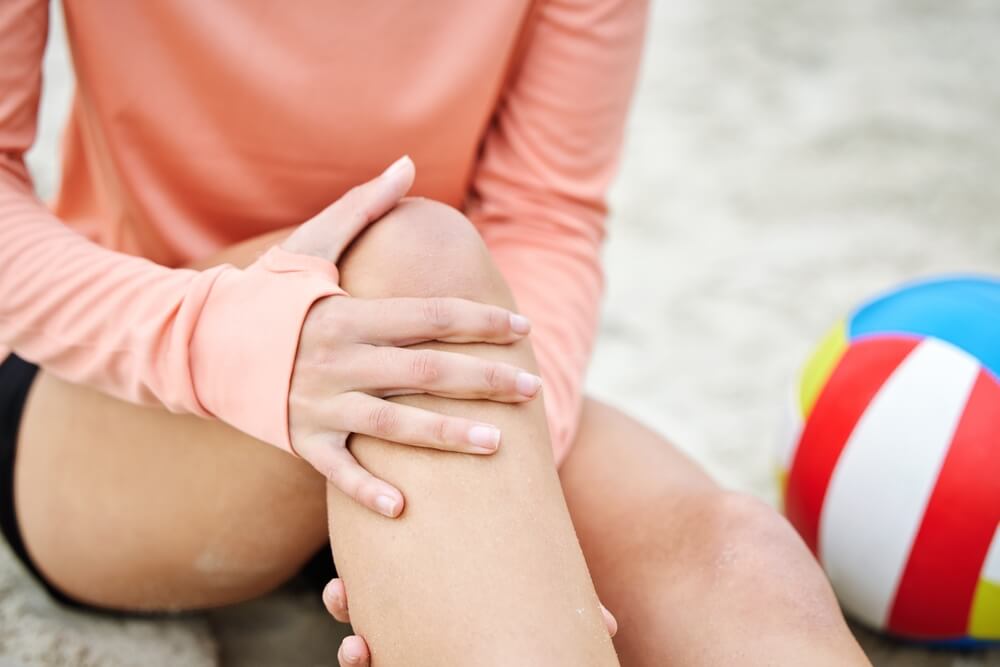Sand volleyball is a fun and exciting sport that can be enjoyed by people of all ages and skill levels. But like any physical activity, there is always a risk of injuries. Whether you’re a seasoned volleyball player or just starting, taking precautions is essential to avoid common sand volleyball injuries.
Volleyball Beach discusses some of the most common injuries in sand volleyball and provides tips on preventing them so you can stay pain-free and fully enjoy the game.
Understanding Common Sand Volleyball Injuries
Playing sand volleyball exposes players to a unique set of injury risks, primarily due to the unpredictable nature of the sand surface and the dynamic movements required by the game. Here’s a list of some of the most common injuries players encounter:
1. Ankle Sprains: Landing awkwardly after a jump or making a sudden change in direction can easily lead to rolling or twisting an ankle, resulting in a sprain. The soft, uneven sand surface can increase the risk of such injuries.
2. Jumper’s Knee (Patellar Tendinitis): This overuse injury is caused by repeated jumping and landing, leading to stress on the patellar tendon. Sand volleyball players are particularly susceptible due to the constant jumping involved in the game.
3. Shoulder Injuries: Overhead motions such as serving and spiking can strain the shoulder muscles and tendons, leading to rotator cuff injuries or shoulder impingement syndrome.
4. Finger Injuries: Fingers are at risk during ball blocking and setting, where misjudged timings or forceful impacts can lead to sprains, strains, or fractures.
5. Lower Back Pain: Jumping, twisting, and bending, often without proper core engagement, can strain the lower back muscles, resulting in pain or more serious back injuries.
Recognizing and Responding to Injuries
Empower yourself by recognizing the signs of an injury early and responding appropriately. This is key to preventing further damage and ensuring a swift recovery. If you experience sudden pain, swelling, or loss of motion or are suddenly unable to put weight on a joint, it’s essential to stop playing immediately so your injury can be assessed.
The RICE method (rest, ice, compression, elevation) can be an effective initial response to reduce swelling and pain for minor sand volleyball injuries such as mild sprains or muscle strains. However, listening to your body is crucial. If the pain persists or the injury seems more serious, seeking professional medical advice is imperative.
For injuries like severe sprains, fractures, or any injury causing significant functional limitation, professional assessment and treatment are the best options to ensure proper healing and prevent chronic issues.
The Importance of Proper Warm-Up Techniques
Commit to a comprehensive warm-up routine before stepping onto the sand volleyball court. Warming up before gameplay increases blood flow to the muscles, improves flexibility, and primes your body for the dynamic movements of sand volleyball.
- Start with 5-10 minutes of light cardiovascular activity, such as jogging around the court or doing jumping jacks to get your heart rate up.
- Follow this with dynamic stretches that mimic the movements of the game, including lunges, arm circles, and leg swings, to enhance your range of motion.
- Incorporate mobility exercises targeting the ankles, knees, hips, and shoulders to ensure these joints are ready for quick changes in direction and explosive jumps.
- Finish your warm-up with volleyball-specific drills like gentle passing and spiking to engage your coordination and reaction times, ensuring your body and mind are in sync.
Prioritizing a thorough warm-up routine not only guards against common injuries but also elevates your performance on the sand volleyball court.
Related Post: Improve Your A-Game With Beach Volleyball Warm-Up Drills
Sand Volleyball at Volleyball Beach Ozark
At Volleyball Beach in Ozark, MO, we have sand volleyball leagues for beginners and experienced players. We also have an on-site bar and grill. Come visit us in person, contact us online, or call us at 417-771-9330.


